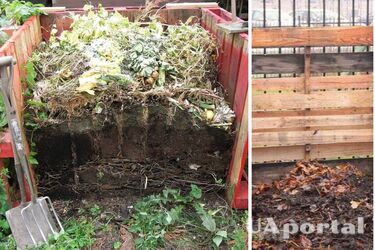What is strictly forbidden to put in the compost pit in order not to spoil the fertilizer

Composting is a unique and convenient way to treat unnecessary waste on your site. However, summer residents do not always know exactly what materials can be used to create compost and which ones should be avoided.
Let's look at some points that will help you better understand this issue. Tips for making compost were provided by the UNIAN publication.
Read also: How to speed up composting three times faster
Can tangerine peels be added to compost?
There is a widespread belief that citrus peels are not suitable for composting because they contain essential oils that can supposedly harm the soil. However, this myth does not hold water. The amount of essential oils in tangerine or orange peels is very minimal, and they do not harm the soil. You can therefore safely include them in your compost.
Can I use coal ash in my compost?
Coal ash is strongly discouraged from being added to the compost heap as it can be harmful to plants. However, wood ash is an excellent option for enriching the soil. It contains useful nutrients that help plants grow and thrive. Therefore, some gardeners recommend scattering wood ash over the beds or adding it to compost to increase its nutritional value.
Can I add fallen leaves to the compost?
Leaves from trees, especially fruit trees (such as plums, cherries, apple or pear trees), grapes, maple, birch and poplar trees, can be safely included in your compost. This is a great way to utilize fallen leaves and create a useful fertilizer for your garden or vegetable garden. If you don't have a compost pit or heap, you can use 50-liter plastic bags. Simply shred the leaves, pack them in bags and make a few holes for air to enter. Do not tie the bags to ensure adequate ventilation for the compost.
What materials should not be added to the compost?
There are some materials that are not suitable for composting and should be thrown in the trash or recycled. These materials include:
- Pet excrement.
- Plastic products.
- Glass, leather and rubber items.
- Glossy magazines and colored paper.
- Tobacco cigarette butts.
- All paints, poisons and solvents.
- The contents of a vacuum cleaner bag.
Remember that not all plant waste is also suitable for composting, including rotten apples, infected fruits and branches. It is better to bury them on the site or dispose of them appropriately to avoid the risk of developing diseases.
As a reminder, houseplants can beautify your space and bring benefits, but they can also be a source of inconvenience and problems. Some of them have the ability to attract pests, such as cockroaches.
If you want to get the latest news about the war and events in Ukraine, subscribe to our Telegram channel!
